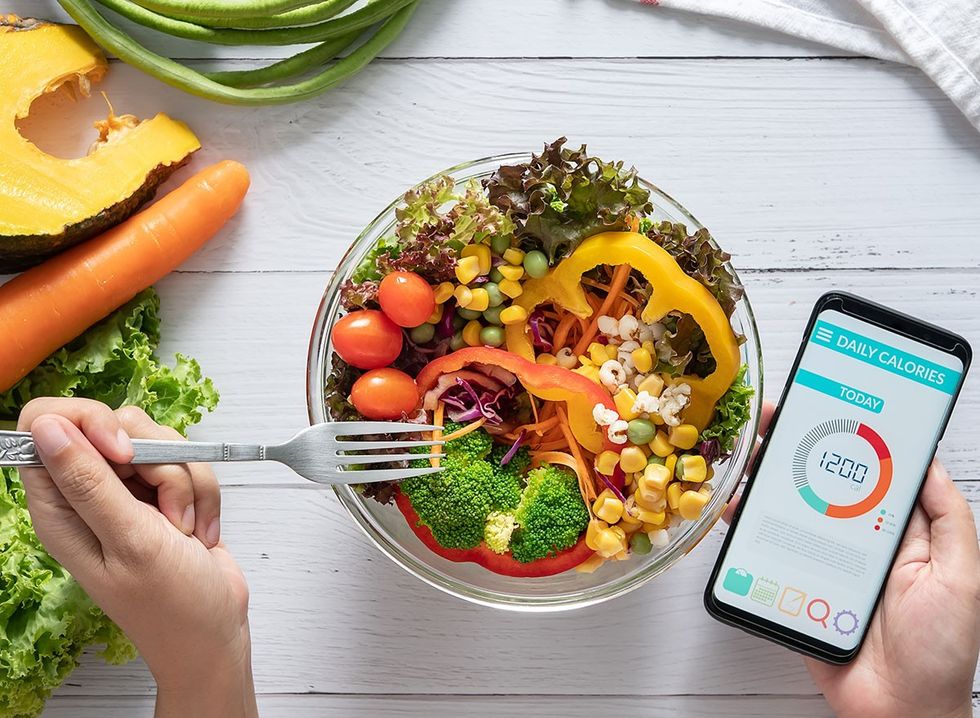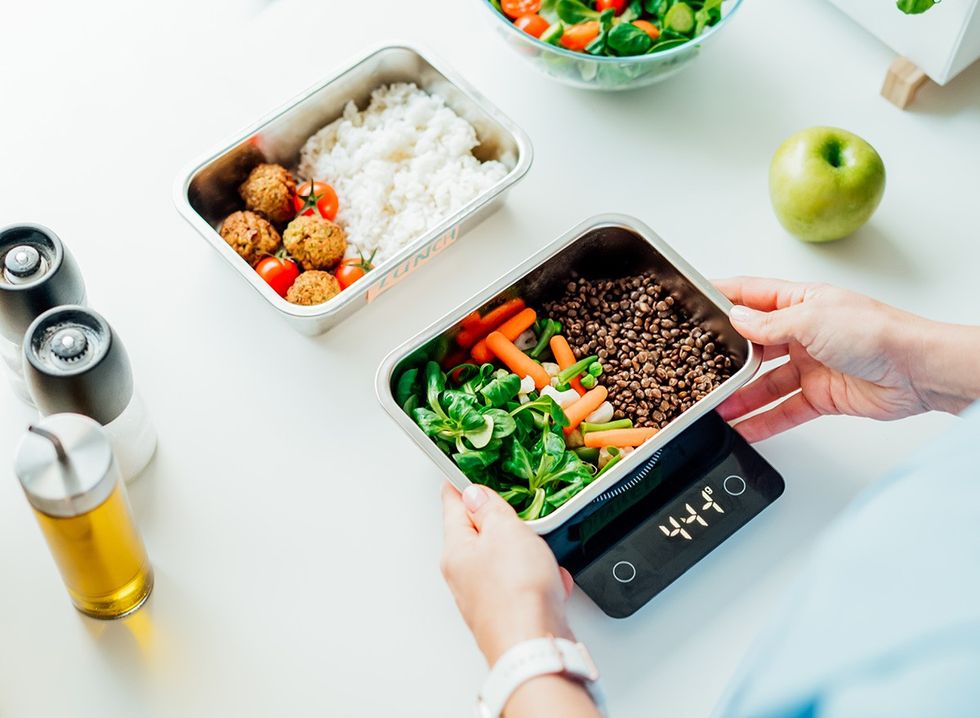No single vegetable can magically help you reach your weight loss goals. Therefore, a more effective approach is to choose foods — not just vegetables— that have a nutrient profile aligned with your overall diet. A "nutrient profile" refers to the combination of calories, fiber, and other nutrients critical in helping you reach your goals. Since no one food is ideal, a diet with a good variety of food, including diverse vegetables, is essential.
Start By Looking at Your Nutritional Needs

Individual needs can vary, influenced by personal preferences, health conditions, and recommendations from healthcare providers or dietitians. For example, if you have digestive issues, particularly with regularity, your medical team might recommend prioritizing more fibrous vegetables in your diet, regardless of calories. Similarly, if you're deficient in a specific nutrient like Vitamin D, increasing your intake of foods rich in that nutrient may be advised. In cases where dietary sources alone might not meet all your nutritional needs, supplementation could be necessary as advised by your healthcare provider.
There Are Three Criteria to Pay Attention To

The list of vegetables below is strategically organized based on three key nutritional criteria per 100 grams (listed in the order of priority focus): fiber content, calorie content and water content. Each factor plays a vital role in weight management.
Fiber Content

Fiber is essential for promoting satiety—the feeling of fullness—which helps control hunger and prevent overeating. Additionally, fiber supports digestive health by maintaining bowel regularity.
Calorie Content

Managing calorie intake is crucial for weight control. Vegetables with lower calories are prioritized because they can be consumed in larger volumes without significantly impacting total caloric intake, supporting weight loss or maintenance.
Water Content

High water content in vegetables contributes to hydration, which is essential for overall health and aiding digestion. Consuming water-rich vegetables can enhance satiety and reduce overall calorie consumption, as they tend to fill up the stomach with fewer calories.
RELATED: 7 Ways to Lose 15 Pounds in Two Months, Say Experts
How Veggies Are Ranked

The vegetables are ranked primarily by their fiber content for satiety and digestive benefits, followed by low-calorie content, and finally by their water content to assist with hydration and further enhance the feeling of fullness. This ranking could change if the dietary focus shifts, for example, to increasing a specific nutrient like more Vitamin D food if deficient or enhancing hydration for individuals who might not drink enough fluids. It is very important to adapt based on individual health needs, dietary preferences, or specific nutritional goals. Also, please remember that effective weight loss strategies should also involve regular physical activity, stress management, and monitoring health through regular check-ups.
Ten Best Veggies for Weight Loss
Addressing Common Issues with Eating Vegetables

Many people find it challenging to incorporate enough vegetables into their diet. Whether it's due to taste preferences, preparation time, or simply not knowing how to include them in meals, here are some practical solutions to make vegetables a staple in your daily eating habits.
How to Improve Taste

- Experiment with Cooking Methods: Change things up by roasting, grilling, sautéing, or even air-frying vegetables.
- Add Flavor: Boost the taste of your veggies with herbs, spices, a squeeze of lemon, a drizzle of olive oil, or a sprinkle of parmesan cheese.
- Sneak Them In: If direct vegetable dishes aren’t your thing, try blending them into smoothies, mixing them into sauces, or incorporating them into baked goods. This way, you get the nutrition without a strong vegetable flavor.
Reducing Preparation Time

- Frozen or Canned Alternatives: Keep a stock of frozen or low-sodium canned vegetables for a quick and easy option that saves prep time.
- Batch Cooking: Spend some time on the weekend preparing a large batch of vegetables to use throughout the week.
- Pre-cut Vegetables: Buy pre-cut veggies if you’re short on time. They’re perfect for quick snacks, stir-fries, or to throw into a dish last minute.
Incorporating Vegetables into Every Meal

- Breakfast: Add spinach, mushrooms, or bell pepper to your morning eggs. You can blend greens like kale or spinach into your smoothie.
- Lunch: Create vibrant salads packed with a variety of vegetables or roll them up in a wrap.
- Dinner: Make a side of mixed roasted vegetables, stir-fry them with your favorite protein, or add them to pasta dishes.
RELATED: 15 Quick Ways to Lose Body Fat Percentage in a Week
Conclusion: Yes, Veggies Can Help You Lose Weight

Incorporating a diverse range of vegetables into your diet is a powerful strategy for both weight loss and overall health. Remember, there's no single "magic" vegetable for shedding pounds. The key is to enjoy a variety of veggies that provide essential nutrients, support satiety, aid digestion, and keep you hydrated. While it might seem challenging at first, exploring different ways to prepare and enjoy vegetables can be a fun and rewarding journey. Whether you're roasting Brussels sprouts, blending kale into smoothies, or adding colorful bell peppers to your morning eggs, there are countless delicious possibilities to discover. Don't be afraid to experiment with new flavors, textures, and cooking methods to find what works best for you. And if you're short on time, remember that frozen, canned (select the low-sodium options), or pre-cut veggies can be just as nutritious and convenient.
💪🔥Body Booster: Try incorporating a different vegetable into every meal to reap a variety of nutritional benefits.
Yaa Boakye is a Registered Dietitian Nutritionist (RDN), Nutrition Consultant and Body Data Practitioner



























 Shutterstock
Shutterstock 22. Cauliflower: 25 caloriesShutterstock
22. Cauliflower: 25 caloriesShutterstock 9. Zucchini: 17 caloriesShutterstock
9. Zucchini: 17 caloriesShutterstock 12. Bell Peppers: 20 caloriesShutterstock
12. Bell Peppers: 20 caloriesShutterstock

 Snack on Low-Calorie, High-Volume SnackShutterstock
Snack on Low-Calorie, High-Volume SnackShutterstock VegetablesShutterstock
VegetablesShutterstock


 Shutterstock
Shutterstock Shutterstock
Shutterstock Shutterstock
Shutterstock Shutterstock
Shutterstock Shutterstock
Shutterstock Shutterstock
Shutterstock Shutterstock
Shutterstock Shutterstock
Shutterstock Shutterstock
Shutterstock Shutterstock
Shutterstock Shutterstock
Shutterstock Shutterstock
Shutterstock
 Shutterstock
Shutterstock Shutterstock
Shutterstock Shutterstock
Shutterstock Shutterstock
Shutterstock Shutterstock
Shutterstock Shutterstock
Shutterstock Shutterstock
Shutterstock

 I'm a Nutritionist and These 9 High-Protein Snacks Keep My Clients Full While Losing 50 Pounds
I'm a Nutritionist and These 9 High-Protein Snacks Keep My Clients Full While Losing 50 Pounds
 Shutterstock
Shutterstock 2. Processed FoodsShutterstock
2. Processed FoodsShutterstock Shutterstock
Shutterstock Shutterstock/Prostock-studio
Shutterstock/Prostock-studio Shutterstock
Shutterstock Pro TipsShutterstock
Pro TipsShutterstock Shutterstock
Shutterstock Shutterstock
Shutterstock Shutterstock
Shutterstock Don’t Drink as Much AlcoholShutterstock
Don’t Drink as Much AlcoholShutterstock Most Women on GLP-1s Are Making a Few Common MistakesShutterstock
Most Women on GLP-1s Are Making a Few Common MistakesShutterstock Soda and Sugary DrinksShutterstock
Soda and Sugary DrinksShutterstock Shutterstock
Shutterstock Eat BreakfastShutterstock
Eat BreakfastShutterstock And Improve Insulin SensitivityShutterstock
And Improve Insulin SensitivityShutterstock Belly Flab Strip Tip: Sugar and Fat Calories Leave Its Mark on Your BodyShutterstock
Belly Flab Strip Tip: Sugar and Fat Calories Leave Its Mark on Your BodyShutterstock Shutterstock
Shutterstock The Drugs Mimic the GLP-1 Hormone Naturally Produced by the BodyShutterstock
The Drugs Mimic the GLP-1 Hormone Naturally Produced by the BodyShutterstock 3. Deep-Fried ItemsShutterstock
3. Deep-Fried ItemsShutterstock